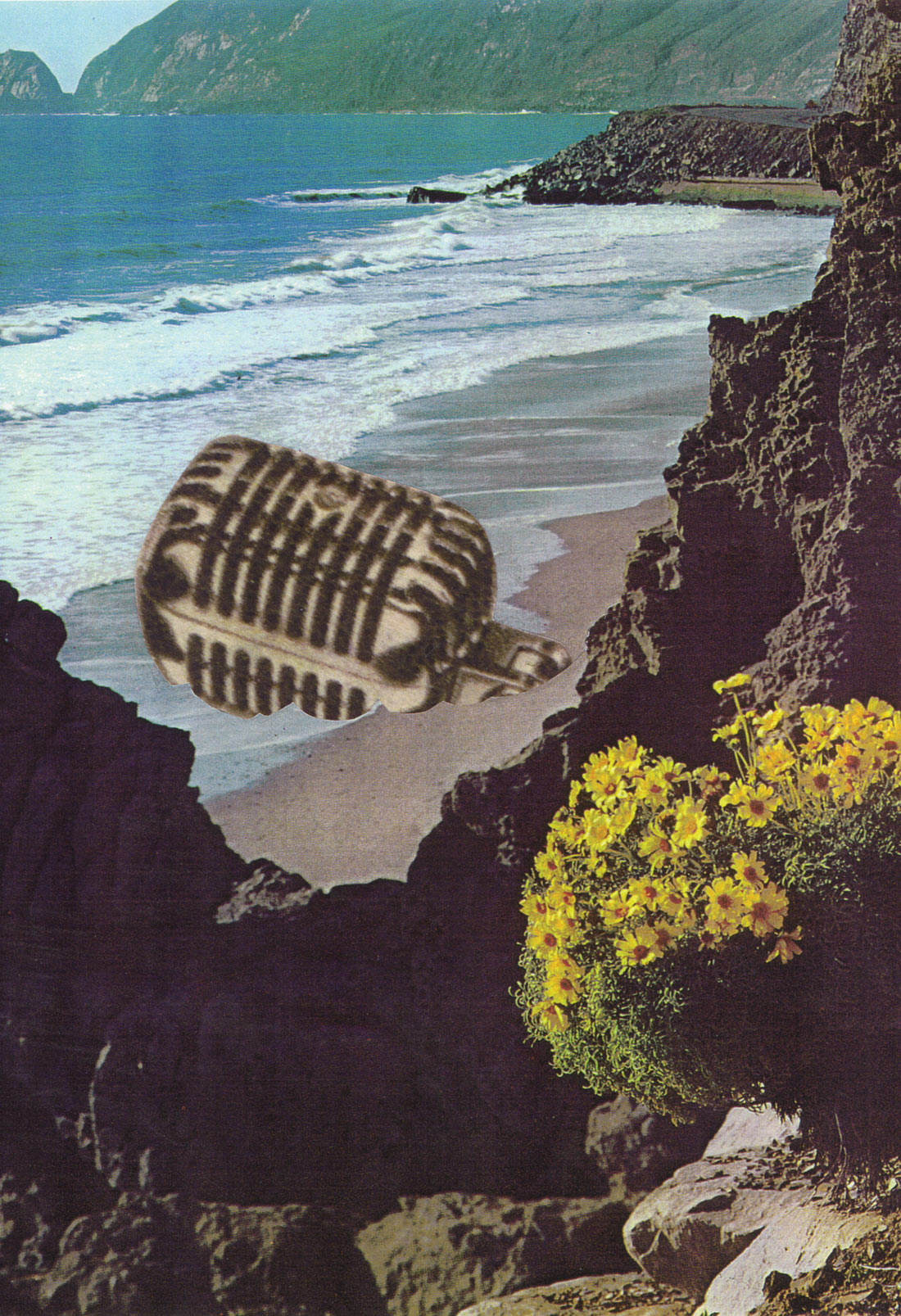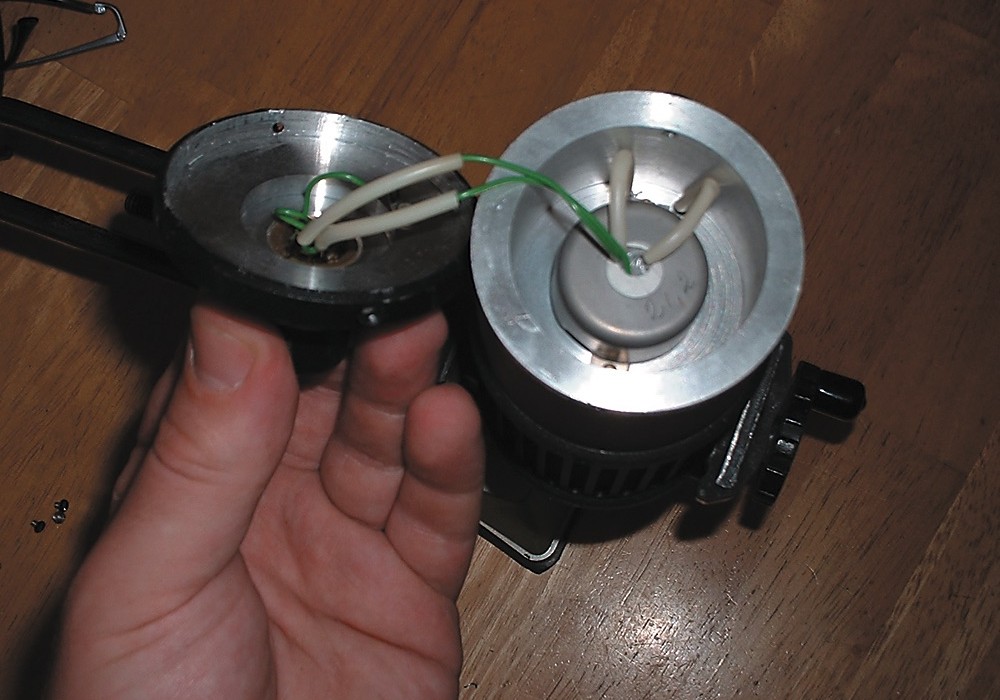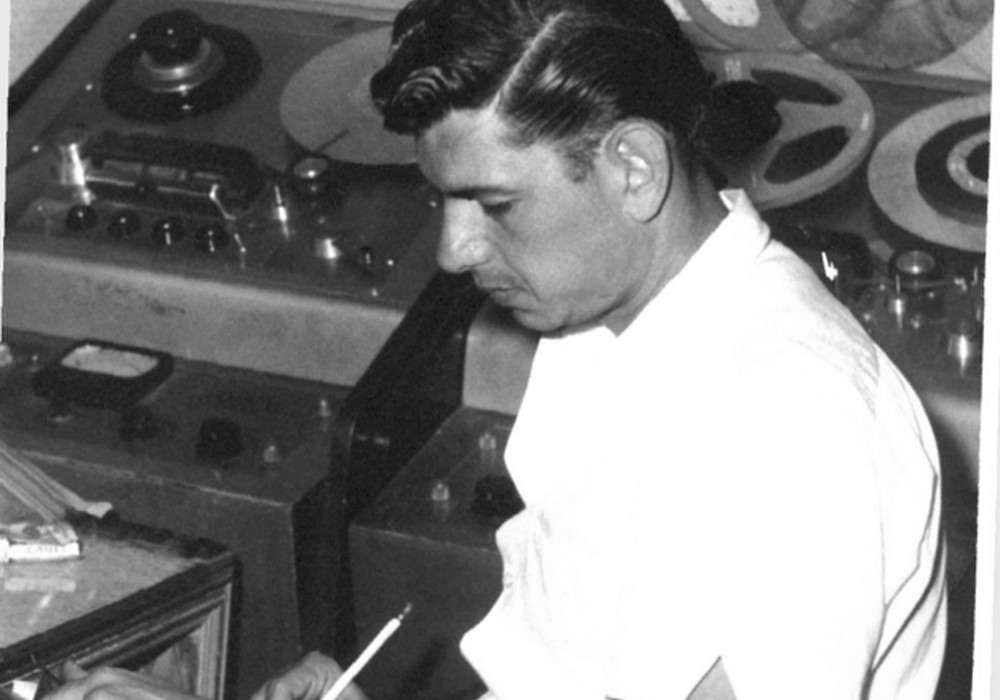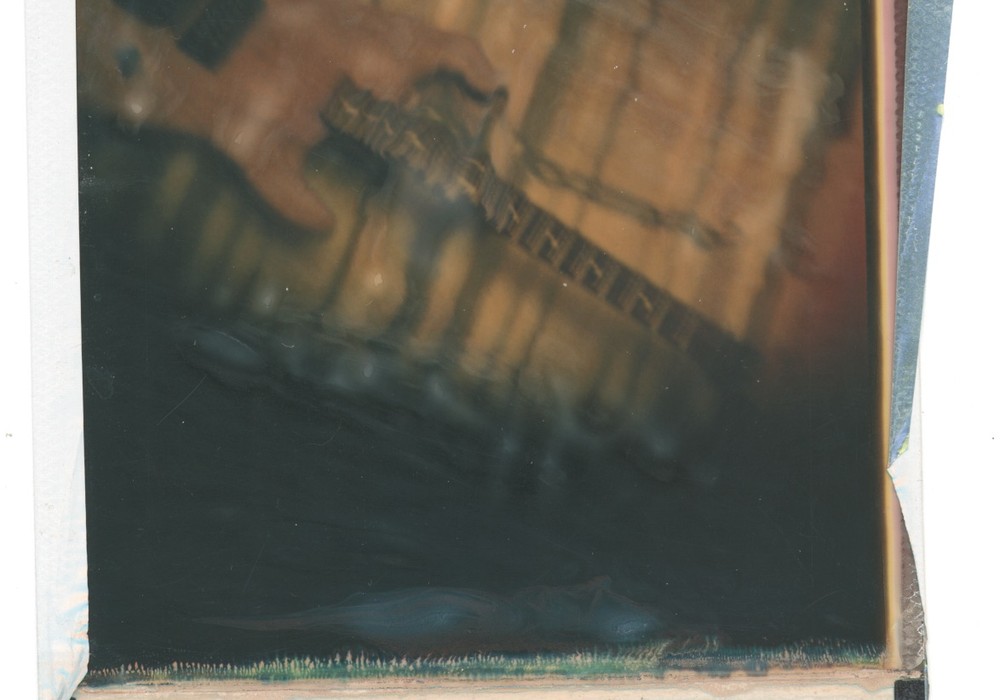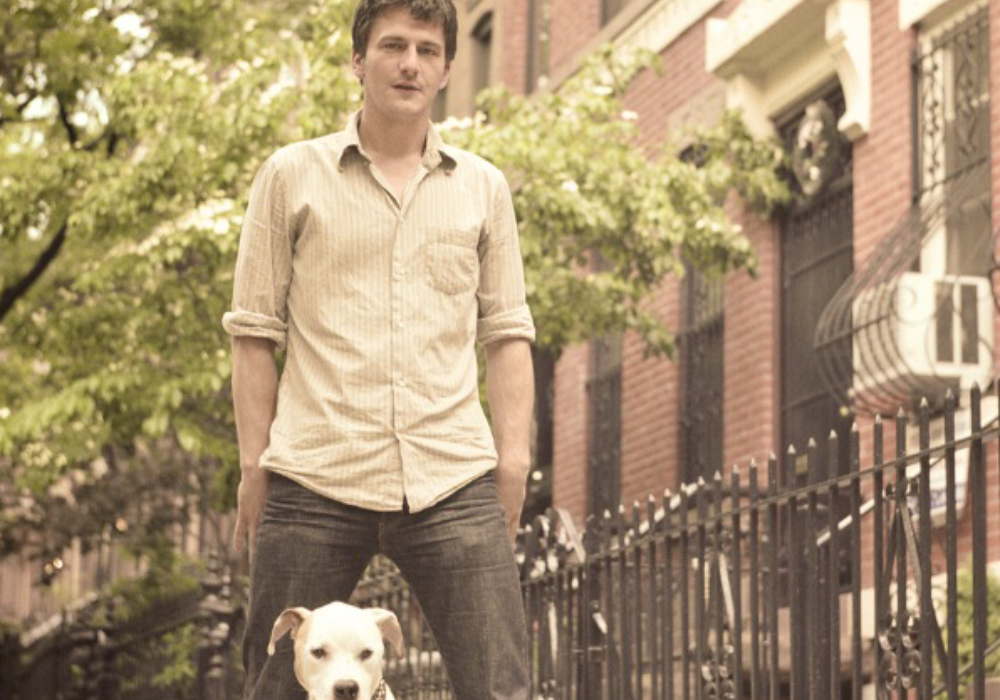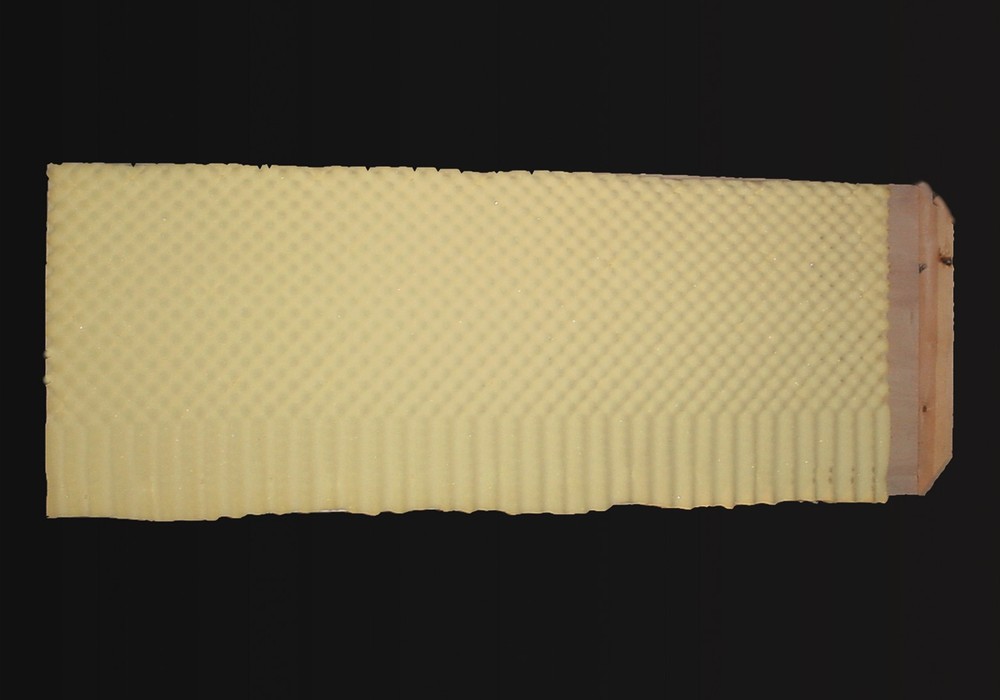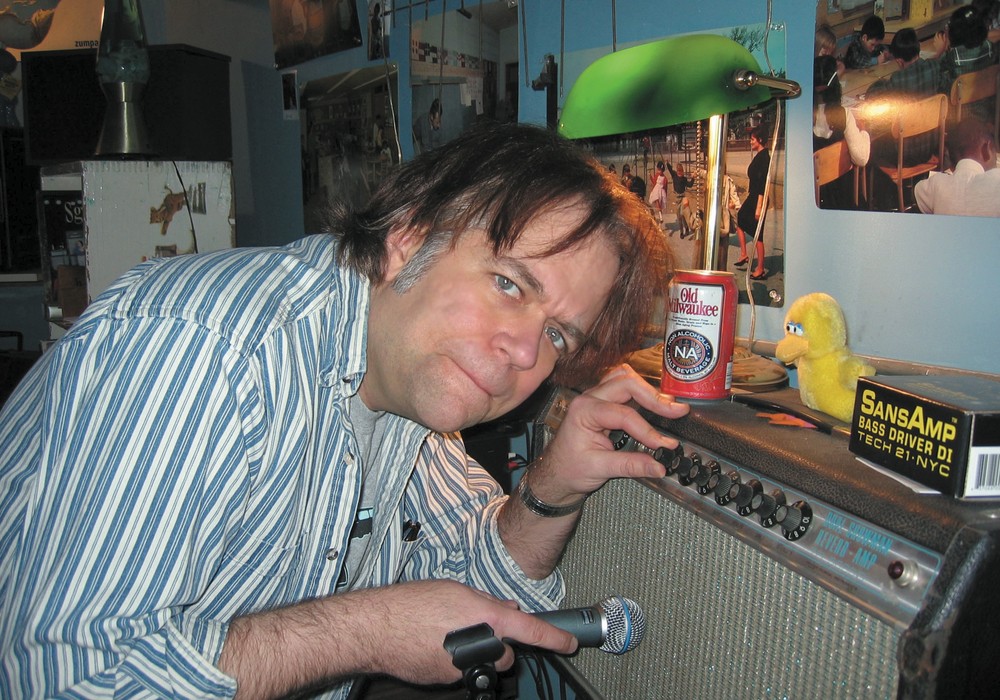Producer and engineer Ken Caillat added "author" to his list of accomplishments last year when he recalled his time spent recording Fleetwood Mac's album Rumours in his book, Making Rumours. It's simply an amazing read. Ken also worked on Mac's Tusk, Live and Mirage albums, plus many other sessions by the likes of Paul McCartney, Herbie Hancock, Warren Zevon, Pink Floyd, and Joni Mitchell. In recent years he's produced four successful records for his daughter, Colbie Caillat. He currently has a suite (Studio E) at the famous Village Recorders building (a former Masonic Temple!), where 35 years ago he helped design the studio where sessions for Fleetwood Mac's Tusk took place.
It seems people really like you and that opened doors for you in the business, beyond simply engineering. What do you think it is about your own personal make-up that brings that into play?
I dunno. Back then, if we're talking about Rumours and the '70s, I was a young guy and I was pretty determined. I was a little quiet, probably, but I was very confident in my abilities. I had learned a lot from watching engineers, some of them really great, and I memorized everything. By the time I got to Rumours I had done a number of live albums — Joni Mitchell was the most notable [Miles of Aisles]. I did the strings for Wings' Venus and Mars; Paul McCartney came up to me and said it was one of the best string sounds. I was very comfortable with what I did. When they hired me to do Fleetwood Mac, all I had to do was just be myself. I didn't want to hold back. I told them on the third day [of tracking Rumours] that we were going to get a Grammy for this record. They went, "Sure." So I was intent on doing that, but then they threw me a curve. On the second or third day in the studio they said, "You can't just sit there, turning knobs. You have to participate and listen to what's going on. We want you to be our eyes and ears." We'd just done two takes, so it was questions like, "Which tempo did you like better? Which take did you like better? Were any of us stepping on each others' toes?" They wanted to make sure they were playing well, and that you could hear everything. They basically wanted me to learn to be a producer, like, "Here's how you do it."
Did you start to listen to the takes as they were going down carefully enough to have that information?
Yeah, I started taking notes. I basically produce by engineering. If I can't get all of the sounds to come up and be a good mix, it's like, "What's wrong?" If the sounds aren't the problem, then what is the problem? A couple of takes later I said to Christine [McVie], "Well, I was really having trouble hearing you and Lindsey [Buckingham], because it seemed like I couldn't tell your parts apart." She said, "Oh, Lindsey, why don't you play up a third and I'll play down a third." So I memorized that. Next time I said, "Hey, I think you guys are stepping on each others' toes. Can one of you play up and the other down a little bit?" They said, "Yeah, sure. We can do that. Thanks Ken!" I was like, "Wow... okay!"
Things they might not hear because they're focused on their own parts.
Yeah, right. That's really what production is. It's like English language; putting in the commas, the periods, and being a traffic cop. "Wait! You were playing way too much. Play half as much. You're playing perfectly and you guys work together." Sometimes, with these new guitar players, it's like, "Are you going to continue to play all the way through?" Don't they know if you play all the way through that the human ear, just like a buzz, will just notch it out? "They're not going to hear you at all. Is that what you want?"
I'm convinced that so much more of our time should be spent arranging,
Right. And less is more.
Do we enter into sort of a doctor/patient thing when we're in there making a record with someone? After writing a book about it years later, did you feel there were any points where you were putting too much out there?
I didn't think there was any trust violated. And I hope I'm right!
I'm not saying that in a critical way.
Right, but I thought it was my story. It's not their story. It's my story of what I went through being a fly on the wall and being right there. So yeah, maybe I had some hesitations about discussing John McVie's drinking. But he's a big boy, and he knows it! I'm not telling any secrets, and he made a terrific record. I just wanted to paint the picture of what it was like to be sitting in there and working with these people on a big-time album. And yeah, I might have told a little bit too much, but most of the time I tried to be more complimentary.
That must have been a rough time for him too, personally of course.
Yeah, but no. The deal on that was that Christine basically said, "John, I can't stand the drunk. So give me John the sober guy, and I'll stay." And what did he choose?
True. Partway through making that album Mick came to you and Richard Dashut [co-producer with Ken and the band] and said, "I'm giving you guys co-production credit." You got points at that juncture, which was a completely life-changing for both of you, I'm sure.
Completely, yeah.
When you look back at that, are you still blown away by that gesture?
Yes and no. It was a great gesture, but I believe good things come to those who deserve it. Many times I've said, "Look, if you don't want to give me points, if you don't think I'm doing the job, then don't. But if you think I'm doing the job, then I want to be paid." We were working very, very hard. Richard and I were in there, day in and day out, coming up with ideas. We deserved it, we earned it, and they were right by giving it to us.
I could see other scenarios where someone might not offer it.
They went on vacation for three or four weeks and left me and Richard with Lindsey. Mick would have never done that before, but now he was comfortable with it. I think the whole world should learn that lesson: If an employee is doing a damn good job, give them a bonus. You don't have to go crazy, but give some kind of acknowledgment.
I've been in scenarios where I'm not sure if the band's considering me just an engineer. Sometimes you get a co- production credit, and at least you get the credit, which can make our careers.
Well, I've worked with assholes who didn't. I did everything on Joni Mitchell's Miles of Aisles. I chose every single mic, I did all the EQ, and I did everything on every show. We did 40 shows for Joni. Henry Lewy (her producer) came in, kind of cockily, one day and said, "Hey, I'm just going to play producer, and you can play engineer." So, great. He didn't have much to say to me. I was doing my thing, and he might say, "Okay, now is a guitar solo, so get ready." Then, when the record came out, he didn't even put my last name on the record. I said, "Henry, I'd like to at least get a gold record." He said, "Gold record? I've got plenty of them here. Do you want one?" I was like, "You prick!" He knew it was important, and that's a pretty shitty answer.
In Making Rumours you compare the recording technology of the '70s with what we have available now. What do you think of the changes that we've seen?
I think it's great. I think that Pro Tools is tremendous, and it makes my job a lot easier in some ways. But after writing the book, and talking about it enough, I've realized that one of the blessings about analog was that it was a slower process. We had bigger budgets; we weren't in a rush to go anywhere. When you're running analog tape you had to rewind. I'm sitting at the console with my artist out there, and we're connected with microphones and speakers. I'm talking to them when they've just finished a guitar part, vocal, or whatever. While I'm rewinding I have to fill the time, so it's like, "Hey, Lindsey, that was a great part. On that second verse, you started doing this syncopated thing. I don't know what it was, but it was really cool." He'd say, "Really, could you play that for me?" I'd stop and play him back the part. And he'd say, "Wow, that was cool. I didn't realize that." So I'd say, "Do that some more." You have all this talking. But in Pro Tools it's just, "Boom, boom, boom. Start again." I have to reach over and say, "Stop. Just stop. Let me talk to them." I want to slow this process down and bring talking and creativity back into it. With Fleetwood Mac, they were all sitting in a room with us and they had no place to go. My daughter [Colbie Caillat] comes in here and is like, "I've got 40 minutes to do the vocal. I've got to go to another meeting." I'd like to say, "Could you just listen? Sit down, and talk about the music." Pro Tools is great for editing, structuring, and things like that. But slow it down. Just take your time. If you're in a Pro Tools room now in somebody's garage or something, your overhead is really low.
There should be more time to talk.
Exactly. That's why I'm here. This room costs me a hundred bucks a day.
I know you thought about writing a Making Tusk book, but maybe not. One of the records that never gets talked about much is their next album, Mirage [1982].
You're right.
The majority of that was done in France. Going on from Tusk, which was sort of seen as a "failure"...
Anti-Rumours.
...even though it sold millions of copies. What were the feelings and thoughts going into Mirage?
Mirage was basically going to be Rumours II. I believe we got off-track. Lindsey got way off-track on Tusk; he just wanted everything to be grungy and really nasty sounding.
Cardboard boxes...
Yeah. I mean, it just hurt my ears. Some of the guitars and distortion were tearing so bad that it made me nauseous. I tried to bury that stuff. I have to hand it to Lindsey, as much as he was dedicated to being different on Tusk, he wasn't with everybody else's songs. He didn't grunge them up. One of the first days we figured out the description was that we were going to make this a "dark" record; and not Rumours, for sure. He was pissed off, like, "I hate bands that do the same thing twice."
The world wouldn't have minded!
No. And the whole band wouldn't have minded, really. He basically threatened to quit, like, "I'll walk out." He tested himself the first time and found out that he'd gotten away with it, and he started to get more obstinate. When Mirage came about, we came together and said, "There's nothing wrong with Rumours, but let's see if we can beat it. Let's see if we can make the songs fatter and the sounds stronger." Engineering- wise, we cut that at CCIR [tape EQ curve setting], because I read somewhere that it gave a cleaner top and a stronger bottom.
Yeah, it makes for a different sound versus NAB/AES settings.
So we cut that album in CCIR. Rumours, by the way, we did at 0 [operating level] at NAB, with Dolby [noise reduction], because I wanted to keep the transients.
I know you mentioned in your book, too, that one of your things was to preserve the transients and use noise reduction to record at a moderate level so you weren't getting that limiting kind of thing from tape.
I did a drum date a couple weeks ago. The drummer was playing tambourine and he was up there, close to the mic. I asked, "Do you hear that going 'click, click, click'?" I had to tell him to back off.
I love grabbing a ribbon mic for that and moving someone back away from it.
Even when it sounds like it's not, it still is distorting. I remember at Wally Heider Studios they had some sort of peak indicator we brought in. I'd set it up on the board, and I was like, "You're kidding me! This thing's broken." I couldn't get back off the mic far enough with the tambourine. The thing was still lighting up. We did Rumours at 0 NAB, and then Mirage at +3 CCIR. Rumours is really bright and mid-rangey. Tusk is very dark, with some grunge in the 400 to 800 cycles range. Meanwhile Mirage had more peaks at 400 to 800, but also more peaks on the lower-end thumping.
It's cleaner in a way, with more of a punch to everything.
But the songs were not quite as exciting.
Were you and Richard trying to gather up the songs that everyone had written and help people sort through the best ones, at that point?
Yeah, we did the same as always — to try to pick the best. But Tusk was really weird. Mick [Fleetwood] chose to go away to Sausalito during Rumours to get away from all the hanger-ons, the lawyers, and all those people. Everybody was on the same page. So we thought, "Let's do Mirage, and let's go away." Everybody had 30 groupies and drug dealers and all this stuff. I flew to a bunch of places and really liked Château d'Hérouville, and I always had wanted to be in France. But we got there and Lindsey and Stevie [Nicks] became the biggest babies I've ever seen. It was like, "I don't have any TV. I don't have anything to do. I'm bored." We literally had a cook who would cook whatever you wanted. So they'd say, "We want steak. We want orange juice." I would walk by their rooms, they had separate rooms, and there would be pitchers of fresh-squeezed orange juice that they just didn't like. There would be a steak that Lindsey said, "I didn't like the way he cooked it." They were just little babies, and I'm like, "What is the matter with you guys?" So I rented video machines. There were barely any video machines around back then, but I had my friend in L.A. who was taping some baseball games and different things and shipping them over. But things just unraveled and they hated it. Lindsey hated it. I'm not sure if Christine hated it. I think Mick and John were just fine. But Lindsey and Stevie were like, "I wanna go home. I wanna go home. Waaah." So we stayed as long as we could, and we finally flew home. Stevie was so miserable. Jimmy Iovine even came over to see her, and he'd be lamenting with her down in this haunted stairwell. I dunno. This is why I don't want to write about Tusk and Mirage. It's sad. Rumours was so... Stevie was still young and innocent. I have a picture of Lindsey, before the Rumours album started, sitting on the floor of an airport playing his guitar, like so many kids you've seen. That ain't ever going to happen again. So writing about Tusk and Mirage is, to me, going to be sad. The engineer that did Tusk downstairs [at The Village] with me, Hernán Rojas, was in Chile and we did a Skype call recently. He said, "Ken, we did so many amazing technological things. We did 'Tusk' at Dodger Stadium." How do you get 250 musicians to all hear what you're doing?
Yeah, how do you do that?
It's like, "I need headphones for 250." Are you crazy? How are you going to do it? "We'll put speakers out there." Yeah, but now you're hearing the speakers in the mics. So, as with every one of these things, we had to figure out how to do this.
Maybe you should write a book that focuses on the technical parts, or something like that.
It's amazing though. I get a lot of Tweets from people who are just very romantic. They romanticize my Making Rumours book. They say, "We are in love with your character." And I kind of dumb myself down in the book to be like...
"California guy"...
Yeah. Shy, you know. The great thing about that book is that I thought it was very positive. It was typical California in the '70s; everybody was healthy, there weren't a lot of drugs and there wasn't a lot of drinking. There really wasn't. I keep telling people who say it was a party; that it's like no party that I've ever been to.
Look at all the work that got done!
Tusk and Mirage... that was a party. There was decadence and an air of, "How dare they talk to me that way?"
I know that you were involved with the building of Studio D here at The Village. How did that come about?
I guess it was a combination of a couple things. For Rumours we were at a place for a long time, and we knew we spent a lot of money. We thought we should build our own studio and have a place, instead of giving money to other people. Simultaneously, Christine started dating Dennis Wilson of The Beach Boys, and they had a studio. They were just about to renovate the whole studio. Dennis came and said, "Hey man, why don't you have Fleetwood Mac do their next album in our studio? We're going to renovate it, so just tell us what you want it to do and we'll make it yours." I thought, "Wow, really? Great!" It seemed like good news. We went over there and had an agreement, a handshake, and we ordered a brand new Neve console. I had friends who worked here at The Village — when Geordie Hormel owned it. At one point The Beach Boys' attorney said, "Before we get too far in, we need to have you guys sign a contract." They got together; The Beach Boys said if they were going to spend all this money building a studio for the band, that even if they [Fleetwood Mac] didn't like it, they'd still have to pay for the whole year or whatever it was. Of course Fleetwood Mac's attorney said, "No. If we don't like it, we're not going to do it." So the deal was off. It was like, "Now what are we going to do?" Plus, we were getting closer to the time when we were going to start. I came over here to see Geordie Hormel — you know who he is?
Yeah, he started The Village Recorders here.
Hormel Hams — he was a trust-fund baby. The Village had the old Masonic Temple in the back corner here. I said, "Geordie, we've already got this console and The Beach Boys backed out. We're ready to do a record and we'll do it at your place if you build a studio for us. We'll use it all the time." He said, "You've got a deal!" We helped design it and he built it. Geordie gave us the option to either pay for the cost of the studio or just rent it. It was like a million dollars, so at one point I told Fleetwood's attorneys that we should just pay the money, because we would end up spending that much on rent.
As an investment for the band?
Yeah, so they could have it as their studio. Fleetwood's attorney said, "You know what, we'd rather be their best client, but not a studio owner. So no." We spent $1,200,000 on the record, could have owned the studio, and the band's never come back to use it again.
That's crazy. Somebody said Supertramp claims they're the ones who built that studio.
No, they were in Studio A. We were Studio D.
A lot of records have been made here. What was the Spherical Sound venture that you were involved in?
That was a mistake. After I finished Tusk, or Mirage, or something like that, somebody played me this tape; it was called Holophonics. The sound would float around your head — it turned out it was done using a binaural microphone. We had differences of opinion with the inventor [Hugo Zuccarelli]. We saw that there were a lot of businesspeople requesting us to record stuff, so we went and bought the best binaural head we could and put the mics in. Spherical Sound was an effort to bring surround sound to records. But we could never get around the fact that the human ear is the big deal on locational information of sound; it tends to funnel sound in and make it sound pinchy. It sounded great on headphones.
Right, more dimensional.
But coming out of speakers it just never worked. We tried for a few years to make it work, and we kind of got sucked up into this hype. People were thinking, "Wait a minute. When we listen to headphones, we hear this stuff going around." Somebody walks in the room, and people would be blindfolded or whatever it was, and they'd say, "There's a guy over there! He just walked in the door." No, he didn't. But people were so hyped-up about that. People kept coming and coming to see if we could figure out how to do something with this thing. But finally I realized that we were selling bullshit because it didn't work on speakers. In today's world it would have been great, because everyone's listening on ear buds! But anyway, that was a mistake — kind of a five-year waste of time.
You started Xepa Digital, the archiving company that was sold to Iron Mountain. What was the impetus for that?
Before Xepa, I had the 5.1 Entertainment Group. 5.1 Entertainment dealt with taking old masters and remixing them for DVD-Audio 5.1 surround. Some of these tapes were really messy, particularly Fleetwood Mac's Mirage. I pulled those tapes out of the vault and they'd basically turned into icky, sticky crap. Like pitch from trees.
They were not even that old at that point.
No. It's just that however they got stored, the tapes weren't happy. So, in talking to Warner Bros., I looked in this huge vault at these floor-to-ceiling shelves of tape and thought, "Oh my god, if Fleetwood Mac's are going bad, how many others of these are as well?" So we started lobbying to do tape preservation. A guy named Paul West at Universal [Music Group] liked the idea and said he wanted to do it. I envisioned preserving the world's tapes, you know? Rome, Paris, Tokyo, California, and New York. Paul said, "I love the idea. We're going to have you do all our tapes." I said, "Great. Which one of those cities?" He said, "Slippery Rock, Pennsylvania." So we're about 60 miles outside of Pittsburgh in an underground mine where they store the tapes. He said, "We are going to keep you so busy. We want you to build the studio down there underground, and you guys will work underground." We did; I hired a bunch of guys from L.A. who went back and bought all the equipment, then we set up a preservation studio underground. Eventually they wanted us to set up one here in L.A. too. So we set up preservation services here. Then Iron Mountain came in and said, "This is a great thing. We can make money on you guys." And they bought us.
I came down one time to get some tapes out of Iron Mountain. They said they had a studio, but I didn't trust them to understand what this transfer entailed. We run into this all the time as professionals.
Right, and that's what our concern was. We wanted to be the place with L.A. guys who knew the tapes and loved them. It worked well. Unfortunately, the sad news is that my one partner had a nervous breakdown and basically lost his mind. He panicked and wanted to get out. Iron Mountain came in with a really lowball offer and I said, "No, no. We're about to explode. We're not doing it." My other two partners accepted the deal, so I got outvoted. They sold it out from under me. Part of the sale was that I had to build them a preservation studio in Hollywood. So I did that and then I quit.
So what's your project and focus now?
Well, throughout all that my daughter [Colbie] started really taking off. I've done four records now with her, counting the Christmas record [Christmas in the Sand]. In doing so, I watched my daughter make it from nothing to where she is now, and it was really cool. When I met Fleetwood Mac they were just a bit ahead of where Colbie was when she first started. They were just breaking in, and I saw Fleetwood along from the time they first broke. So I was very intrigued by the whole Colbie thing, and in being there. I wasn't steering the thing, really; I was just holding onto the tail of this wild, bucking bronco. But now I get a lot of calls from parents who say, "I have a talented daughter or son. What advice can you give us?"
Oh, that's cool.
There are so many talented kids. American Idol has done a great job of making kids realize at an early age that, if they want to, they can become a star. Simultaneously, the record business has gone into the toilet, so labels aren't signing anyone. What you've got is a talent pool that's growing and growing. Meanwhile, record labels are saying, "No, no. I can't." So people are coming to me, and I'm saying, "I can." I started thinking, "Well, Apple's iTunes completely changed the way people think about buying music. Why can't we change?" I have so much experience from over the years, and I have great musicians who work with me. I have a low overhead here. I can get a record done really inexpensively and it'll sound as good as anybody's record. I started saying, "Well, I'm going to put out artists!" There are so many good ones; I felt a need to pay back to the industry that's been so good to me. I met with a nine-year-old girl yesterday who came in with her mom and dad. They didn't pay me anything. It wasn't about money, but her parents wanted to know what to do. They knew that she was talented and that she wanted to do this. We talked about ways that she could stay home, still be a young girl, but also pursue her music. I'm very dedicated to the whole process of looking at artists. So we set up a label where we're basically 50/50 partners with the artist. We have songwriters and vocal coaches who work with us. If they come onboard, they're going to be a part of the team. We're also looking at having a baseball-style farm system. People can come down and work with our coaches and our writers. Instead of spending a lot of money on radio and TV promotion, we've hired a few people to sell our music to television and movies. We get paid to have a professional-sounding track on a film; hopefully that will be a good way of getting exposure. TV and movies are yesterday's radio.
I don't know what you'd call radio these days.
Horrible.
Was it interesting to start working with Colbie in the studio? Were you thinking that maybe she should go work with someone else first?
It's the weirdest thing. Everything seemed to happen for a reason. I said in my book that I'm really lucky, and I just felt like nothing had to be thought out. With her it was a natural thing. She was always singing. I got her together with this female vocalist because I wanted to make sure that my daughter learned to breathe right and not damage anything in her throat. My older daughter was taking acting lessons, so I got Colbie the vocal lessons as preparation for college. Then I said to Colbie, "Now that you're singing, and singing well, what are we going to do with you? Are we going to buy somebody else's songs for you to sing? My choice is that you learn to play an instrument. I promise you that you cannot stop yourself from writing a song if you can play an instrument." She said, "I'll do that!" She still gives me credit for that in her interviews. She took guitar lessons and wrote her first song the first day. I was producing a guy named Mikal Blue, who's a singer/songwriter, and I said, "Would you mind if Colbie came down? She's never sung into a microphone or heard herself with headphones or an echo. I'd like to give her a bit of that taste and see what she does." She came into the studio and put the headphones on. I didn't have anything for her to sing, except one of Mikal's songs. She started singing harmony to it and Mikal just flipped out, asking, "Where'd you come up with those harmony lines and that voice?" Mikal had a bunch of other productions he was doing. He asked her, "Colbie, would you sing for me when I need somebody to sing?" So she did that. They recorded "Bubbly" one day, which Colbie wrote while she was still living at home. She put it up on MySpace and it just went nuts.
That's awesome. How crazy, huh?
Yeah. It's fun working with her. Now the only thing about it is that sometimes she says, "Dad, I wish you could just be my dad. Or we could just talk. I don't necessarily want you to talk about the vocal I did." So sometimes I have to say, "Well, I was going to talk to you about this idea I had for a song, but..."
I know you wanted to be a songwriter when you were young. Do you still play a bit of music, or do you ever write at all?
I don't play at all. I actually hurt my hand; it possibly started in my shoulder. My left hand just doesn't want to play guitar — it can't do the chords. I told my wife yesterday that I might get together and write a song with somebody. I'm writing all the time via my production ideas, when I tell people things. I just don't want to do the lyrics. I don't care what they say, but I know how it needs to go.
I've read in some of your interviews that you don't really focus on the lyrics.
I could not tell you... I couldn't recite the lyrics to any of the Fleetwood Mac songs.
